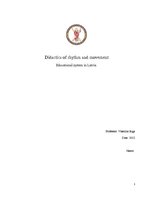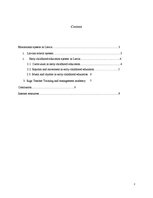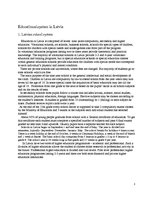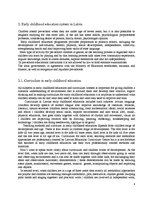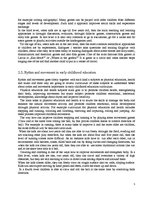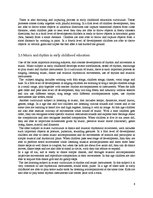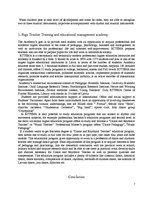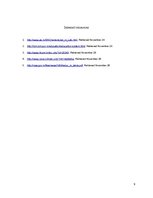-
Didactics of Rhythm and Movement
| Nr. | Sadaļas nosaukums | Lpp. |
| Educational system in Latvia | 3 | |
| 1. | Latvian school system | 3 |
| 2. | Early childhood education system in Latvia | 4 |
| 2.1. | Curriculum in early childhood education | 4 |
| 2.2. | Rhythm and movement in early childhood education | 5 |
| 2.3. | Music and rhyhtm in early childhood education | 6 |
| 3. | Riga Teacher Training and management academy | 7 |
| Conclusion | 8 | |
| Internet resources | 9 |
Conclusion
The Latvian education system is structured at four levels: primary, secondary, vocational and higher education. There are also private schools and universities, where fees are charged, but majority of students go to state schools which are free. Children in Latvia are obliged by law to attend school from the year when they turn seven till the age of 16.
Children attend pre-school when they are under age of seven years, Main type of activity for pre-school children is games, so the teaching process is organised that children can learn by playing and by this learning process kids takes over community experience, acguire knowledge, skills to create attitudes, explore themselves and also act independently.
Teaching methods and curricum in early childhood education dipends from children stage of development and age. There is four levels in children stage of development. Curriculum for each level, teaching methods and methodical approaches are profesionaly created by Latvian Education Curriculum Centre.
Early childhood curriculum includes physical education and music subjects, witch goes includes knowledge about rhythm and movement. These subjects main goals are to promote children health, strengthening their body, improving movement but music subject promote childrem emocional, intelectual development, knowledge about rhytm and improve creativity.
Riga’s Teacher Training and educational management academy (RTTEMA) main goal is to provide each student with an opportunity to acquire professional and academic higher education in the areas of pedagogy, psychology, business and management, as well as motivation for professional life and constant self-improvement. In RTTEMA is also possible to study education programs that are related to rhythm and movement subjects, for example professional bachelor’s education programs and second level in the short vocational higher education program offers to study and become a “Dance and Rhythmic Teacher” or “Music Teacher”. Professional Master’s program offers “Dance Pedagogy”, “Music Pedagogy”.
…
Education in Latvia is composed of levels: nine years compulsory, secondary and higher education. Vocational schools, art schools, business schools, schools for special types of children, schools for children with special needs and kindergartens also form part of the program. In vocational education programs lasting two or three years provide theoretical and practical knowledge. The majority of vocational schools in Latvia provide 2-3 and 4-year vocational education and training programs, but in special education schools or special education classes within general education schools provide education for children with special needs that correspond to each individual’s physical and mental condition.

